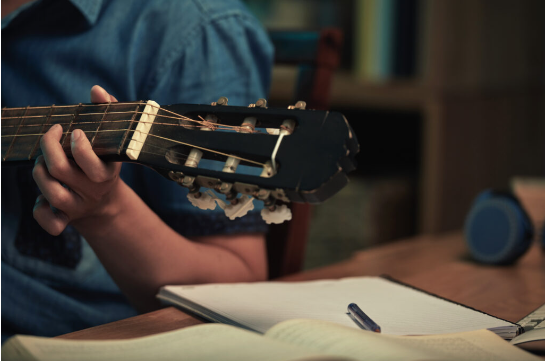Essential Tips for Homeschooling Music Education
A Closer Look
Teaching our nation’s youths is no small task. Anyone who has grandiose ideas of how it should go every day probably should take a step in front of a classroom for a week and see how easy it is. However, there is no short supply of ways to school your children and it starts with what your child needs. I have been blown away by the homeschool community and how they have taken the power into their own hands and transformed communities, lives, and even their own families. It works for them and may work for you.
But what about music in homeschooled children? Not every parent has a grasp on the intricacies of an instrument. Let’s take a look at some of the aspects of homeschooling music and what you can do.
The Benefits of Music Education in Homeschooling
Music has, in a large part, been ripped from public schools. It’s a breathtaking change in how children are taught where most students’ music education provides a plethora of benefits for children’s overall development:
1. Cognitive Benefits
- Enhanced Brain Development: Learning to play an instrument or understand music theory stimulates various areas of the brain, improving memory, problem-solving skills, and mathematical abilities.
- Language Skills: Music exposes children to new vocabulary and helps them develop better language skills.
2. Emotional Benefits
- Emotional Expression: Music offers a creative outlet for emotions, helping children express themselves and manage their feelings.
- Confidence Boost: Achieving milestones in music education boosts self-esteem and self-confidence.
3. Social Benefits
- Collaboration: Playing in a band or ensemble encourages teamwork and cooperation.
- Cultural Awareness: Music exposes children to different cultures and traditions, fostering open-mindedness.
Different Approaches to Homeschooling
Homeschooling comes in various forms, each with its unique strengths when it comes to music education:
1. Traditional Homeschooling
- Structured Curriculum: Parents follow a set curriculum and schedule, incorporating music lessons as part of the daily routine.
- Access to Music Teachers: Traditional homeschoolers can seek guidance from local music teachers or music schools.
2. Online Homeschooling
- Flexible Scheduling: Online programs provide flexibility for students to practice and learn music at their own pace.
- Digital Resources: Access to a wide range of music education websites, apps, and courses.
3. Unschooling
- Child-Led Learning: Unschooling allows children to explore their musical interests without a structured curriculum.
- Creative Freedom: Children can choose their instruments and musical styles, fostering a deep passion for music.
Popular approaches like Power Homeschool or Acellus provide students with great resources to learn on their own.
Tips for Successful Music Education in Homeschooling Online
Here are some practical tips for parents and educators to succeed in homeschooling music education:
1. Create a Music-Friendly Environment
- Dedicate a space for music practice and learning with easy access to instruments and resources.
- Surround your child with music by playing different genres at home.
2. Set Realistic Goals and Expectations
- Establish achievable milestones to track progress and prevent frustration.
- Celebrate small achievements to keep motivation high.
3. Choose Appropriate Instruments and Resources
- Select instruments suitable for your child’s age, size, and interest.
- Invest in quality instructional books, online courses, or software.
4. Schedule Structured Practice Time
- Set aside consistent practice times each day to establish a routine.
- Encourage focused practice with breaks to prevent burnout.
5. Incorporate Music Theory and History
- Teach music theory and history alongside practical skills.
- Explore the cultural and historical context of musical compositions.
6. Seek Out Local Music Teachers or Classes
- Consider enrolling your child in local music classes or private lessons.
- Experienced music teachers can provide valuable guidance and feedback.
7. Encourage Creativity and Exploration
- Allow your child to compose their music, experiment with different instruments, and explore various musical genres.
Online Resources and Curriculum
The Internet offers a wealth of resources for homeschooling music education:
- Khan Academy: Offers free music theory lessons and exercises.
- MusicTheory.net: Provides interactive music theory lessons and ear training exercises.
- SmartMusic: Offers a comprehensive music education platform with practice tools and assessments.
Overcoming Challenges
Homeschooling music education comes with its challenges, but with determination and creativity, you can overcome them:
- Time Management: Balancing music practice with other subjects requires effective time management.
- Motivation: Keeping your child motivated during practice can be challenging. Encourage their interests and provide positive reinforcement.
Homeschooling offers a unique opportunity to unlock your child’s musical potential. Embrace the flexibility it provides, choose the right approach for your family, and follow these tips to ensure a successful music education journey. With dedication and support, you can nurture a lifelong love for music in your homeschooling environment.
Daniel Powers Jr, the founder of Real Brave™, serves as the chief inspiration to thousands of students in the Real Brave music instruction program. He’s also the visionary behind PracticePad™, an online platform for live one-on-one online music lessons, lesson tracking, and scheduling. Beyond his entrepreneurial pursuits, Daniel leads a non-profit organization that provides formerly homeless children with access to music education, making a profound impact on their lives. His unwavering dedication to music, innovation, and education inspires individuals to reach their fullest potential while creating positive change in communities.






